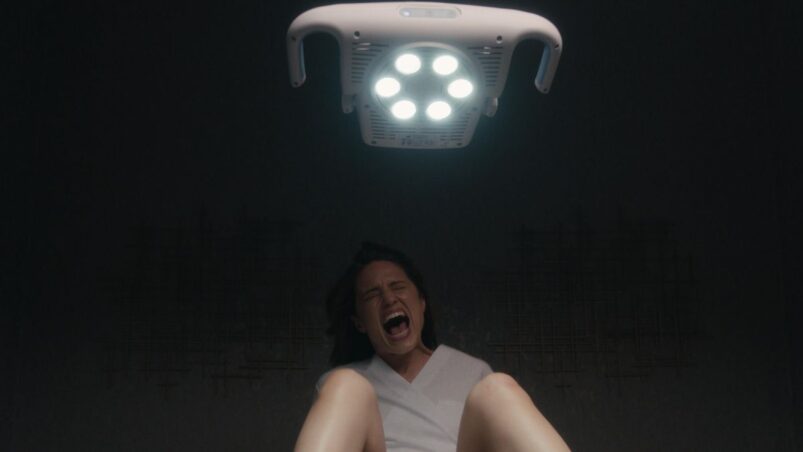Ella Patel (Dianna Agron) has a full and satisfying life. She’s a well-known interior designer, has a loving husband and a lovely home, she does volunteer work and is passionate about cooking. Yet, despite her happiness, everyone else looks at her life as lacking because she doesn’t have any children. Her friends pester her about it, her father expresses his disappointment, and Aidan, her husband, is resigned to the reality of their childless state. He doesn’t want her to commit to children out of obligation, he wants this endeavour to be something they both desire.
Now that Ella’s 37 years old, she can’t put it off anymore. In a fit of urgency, she signs up for a clinical trial that is meant to help her work out the kinks in her biological clock. A woman’s lack of desire for pregnancy is looked at as a fertility issue, since every living thing desires to procreate. At the facility, Ella meets Dr Simmons (Melora Hardin), who has created a programme that help women get over fears surrounding children and pregnancy.
Alexis Jacknow’s film utilises a fair bit of imagery associated with pregnancy and fertility. We get the recurring image of a grandfather clock – an heirloom in Ella’s family – as well as constant food images of eggs. The very first scene in the movie is Ella consuming a deviled egg. It’s reminiscent of Sylvia Plath’s The Bell Jar, with the food imagery used as a way to illustrate a woman’s femininity and the difficulties felt navigating that. For Ella, it feels even more oppressive because of her Jewish roots, and what her own grandparents suffered during the war. They went through hell to survive, to ensure that their family legacy lives on, and yet, she can’t bring herself to do the same.
The film lives and breathes on Agron’s performance, as she fully commits to Ella’s character arc. Her character Ella goes from a self-assured, confident woman to paranoid and hysterical as the film wears on. Her mania is difficult to watch, because we’ve seen her live the opposite, with a shiny, beautiful life. Everything starts to fall apart, as all the aspects of her life that meant something to her are no longer able to bring her the satisfaction they once did. She is a slave to her body and the hormones circulating within her, keeping up the treatment despite the side effects she’s experiencing.
Jacknow’s film is a commentary on how society treats women’s bodies. We are viewed as vessels for life, to be judged and labelled as wanting when we are unable to live up to this expectation. It makes us frantic, zealous, and we’re willing to put our bodies through arduous trials just to have a child. Even a medical procedure feels so dehumanising, as one of the first moments in the film is Ella’s body being prodded and examined.
Why does no one care about Ella’s choices and agency? Why must she feel so guilty for having a life that she wants, and not what everyone else wants for her? Even her husband only sees her as a vessel for his future children, concerned mainly about his own needs and desires.
While some of the horror imagery can feel a bit predictable, Clock does enough to incite a certain revulsion and horror within the viewer. I think my mouth was hanging open for quite a few of the sequences, as the film breathlessly takes us through some graphic and disturbing content. There’s never a dull moment with Clock.
Review screener provided.
READ NEXT: A Nightmare on Elm Street (1984) | Movies to See Before You Die
Some of the coverage you find on Cultured Vultures contains affiliate links, which provide us with small commissions based on purchases made from visiting our site.


